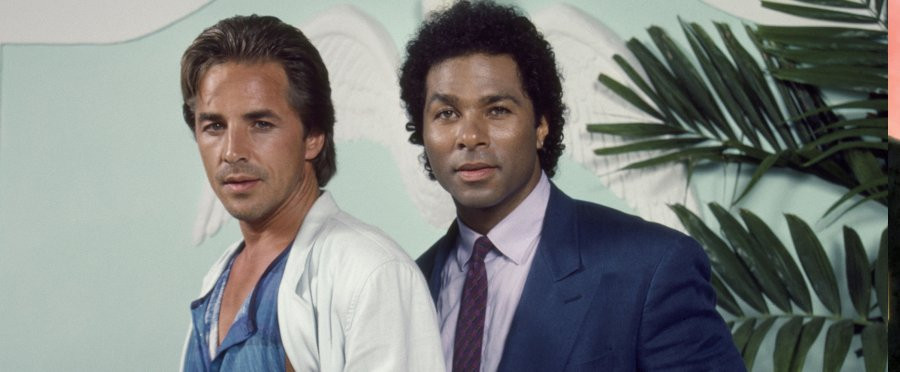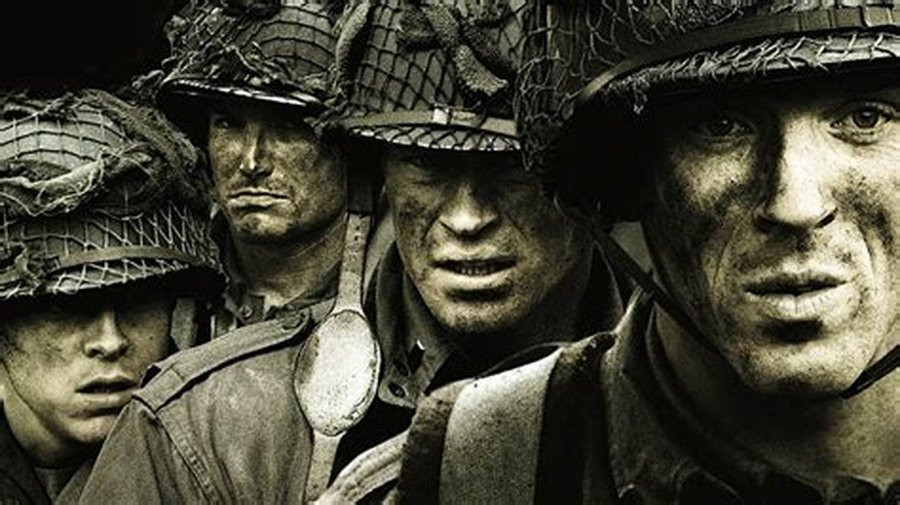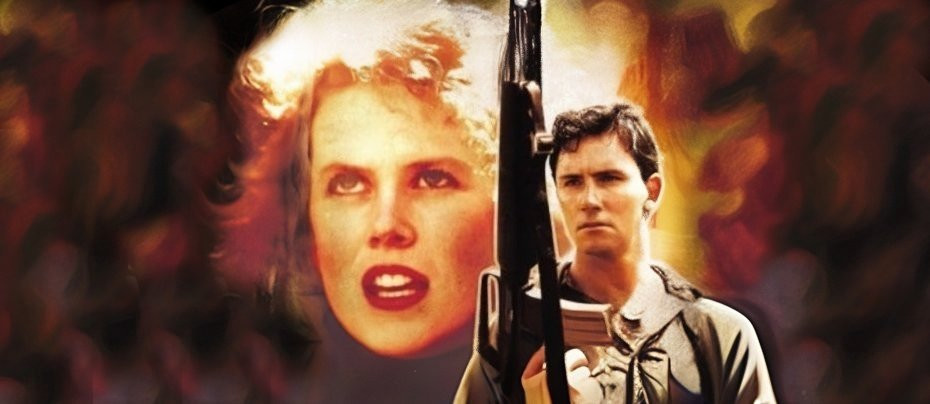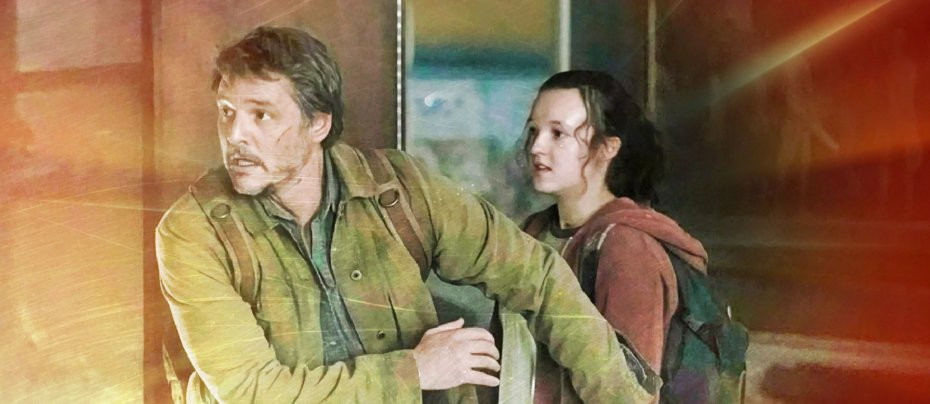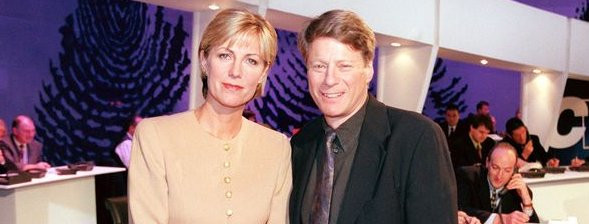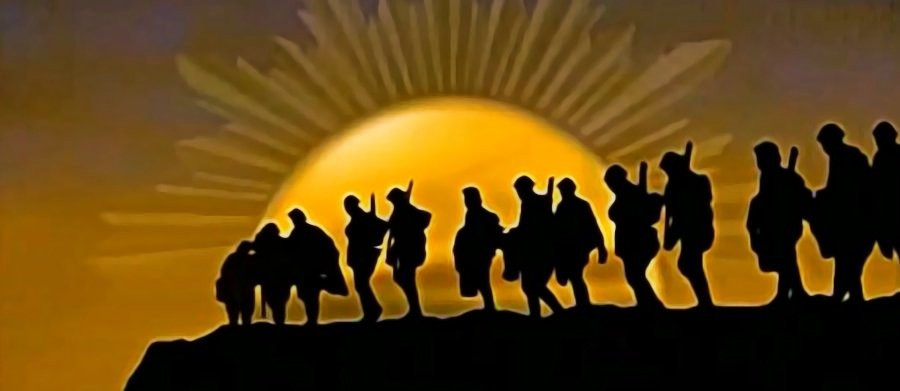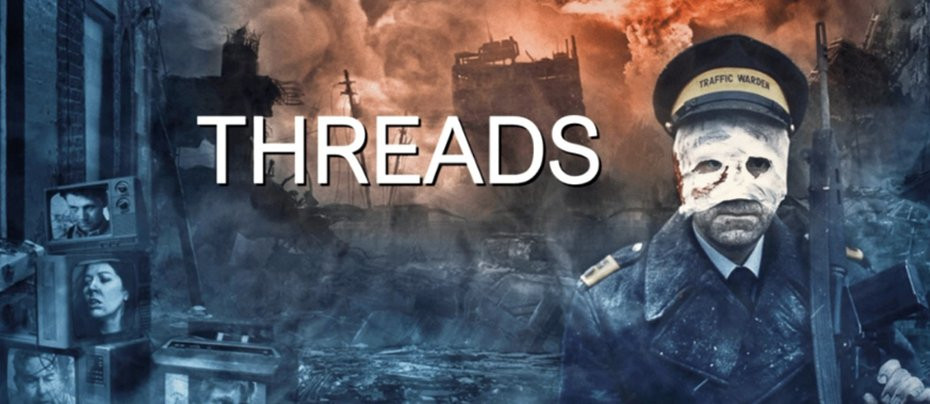
Threads
1984 - United KingdomForty years after its original broadcast, Threads remains one of the most disturbing, bleak and powerful dramas ever shown on British television. Recently rebroadcast to mark its anniversary, only its fourth showing on BBC television, Threads is a glimpse into the fear that simmered under the surface of mid-1980s western society, in a time when the Cold War was once again threatening to go hot.
Threads is reviewed by Daniel Tessier 31/10/2024
The television film was written by Barry Hines, known for hard-hitting stories in and around his native Yorkshire, including the drama miniseries The Price of Coal, and A Kestrel for a Knave, the novel which formed the basis for the film Kes. Presented in a pseudo-documentary style, the film was directed by Mick Jackson, representing something of a halfway point between his science documentaries Connections and The Ascent of Man, and his varied film output, which includes Chattahoochee, LA Story and The Bodyguard.
Threads flickers between the story of two Sheffield families and a government minister, portrayed with deep realism and tangible mundanity, and intermittent documentary segments that recalled the haunting Protect and Survive public information films of the previous decade. The story explores the escalation of tensions between NATO and the Warsaw Pact, culminating in a nuclear exchange that includes twin strikes on Sheffield (identified by the British government as a likely target in such a conflict, due to its status as a major industrial centre). The film goes on to explore the brutal reality of life in the days, weeks, and eventually years after the strike.
Threads wasn't the first production of its kind; it wasn't even the first made for the BBC. That honour goes to Peter Watkins's pseudo-documentary The War Game, which was intended for broadcast in 1965, but was banned by the BBC and the government due to concern that it would lead to public panic. The War Game did receive a very limited theatrical release the following year, but went unbroadcast until 1985, the day before Threads' first repeat showing. The increase in Cold War fears led to two American productions with similar themes in 1983: the television film The Day After; and the less well-known cinematic film The Testament. Although powerful, neither American production had the unrelenting grim reality that gives Threads its power. Perhaps closest of the productions of the time is Raymond Briggs's When the Wind Blows, the graphic novel and animated film of which were released either side of Threads.
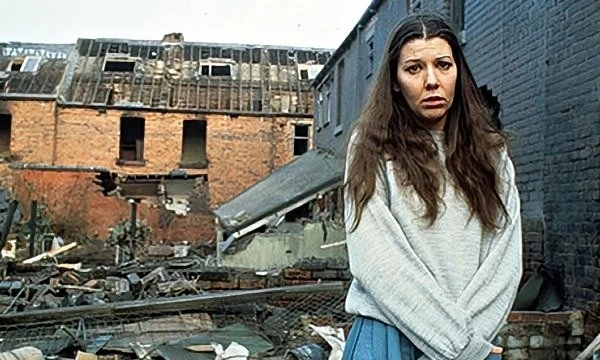
Much of the film follows Ruth, played by Karen Meagher (Heartbeat, Jonny Briggs, Wide Sargasso Sea), a young woman who finds herself pregnant by her boyfriend Jimmy (Reece Dinsdale – Home to Roost, Coronation Street, Emmerdale). To begin with, the drama comes from their families' misgivings over their plans to marry. Jimmy's father Bill (David Brierley – Doctor Who, Emergency-Ward 10) and mother (Rita May – Children's Ward, Trollied, Early Doors) are particularly dismissive of his plans to settle down. Jackson had considered casting actors from Coronation Street in the film, but had decided to enhance the realism of the piece by using largely unknown actors. While many of the main cast became more recognisable later (including for Corrie), at the time they had enjoyed only small roles. The soap opera casting would have made sense, though. Before events grow out of control, the film has the low-level, everyday drama of a Corrie episode.
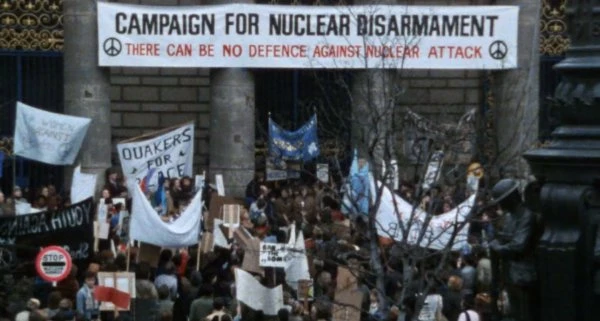
As tensions between the USA and USSR escalate, life slowly begins to change. To begin with, most people don't take much notice of world events, but as the news reports become ever more bleak, fear sets in. Scenes of panic buying and looting are disturbingly familiar from real-life crises, as is the brutal crackdown on anti-nuclear and anti-war protesters. Jimmy begins to make vague plans to take Ruth to the country, while neighbours begin to pack up and leave the city, hoping that they'll be safer further out. Meanwhile, Clive Sutton, Sheffield's Chief Executive, is appointed Controller for preparations and eventual postwar operations. Sutton (Harry Beety) is pragmatic and determined to do his duty, but is, like all the government ministers and experts, wholly unprepared for what will follow.
The scenes of the second, direct strike on Sheffield, after an initial strike to disable technology, is brutal in its horror, yet never gratuitous or sensationalised. As with all that is portrayed in Threads, the inferno is chilling due to its realism. Hines and Jackson (the latter of whom had already worked on the QED instalment “A Guide to Armageddon”) consulted many academics and experts, including physicist Carl Sagan, to ensure that their portrayal of the nuclear aftermath was accurate. Threads is credited as being the first on-screen depiction of a nuclear winter, with the radioactive ash and dust left by the strike leading to ongoing food shortages and horrific illnesses for years afterwards.
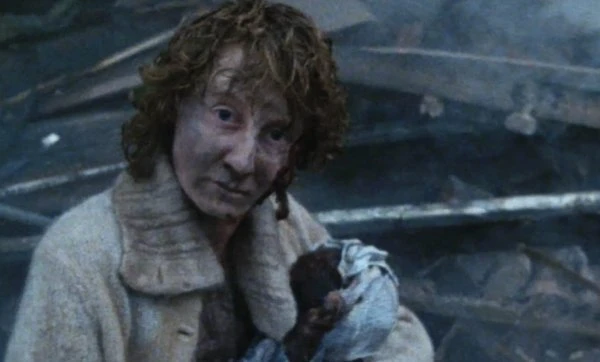
The chaos overcoming society before the strike is nothing compared to the disintegration of civilisation that follows. Notably, we don't hear anything of the world stage after this, or even much of life elsewhere in the UK; no one has time for anything but basic survival. An increasingly desperate population is kept under control by martial law as the first, tenuous steps at rebuilding take place. Many anti-nuclear demonstrators were recruited as extras, populating the film with hundreds of survivors. Michael Beecroft, little more than an extra, achieved some notoriety in his brief role as an injured traffic warden, pressed into service as a martial policeman. The almost surrealist image of the man in his degraded uniform, his face obscured by bloodied bandages, has endured as one of the film's key images.
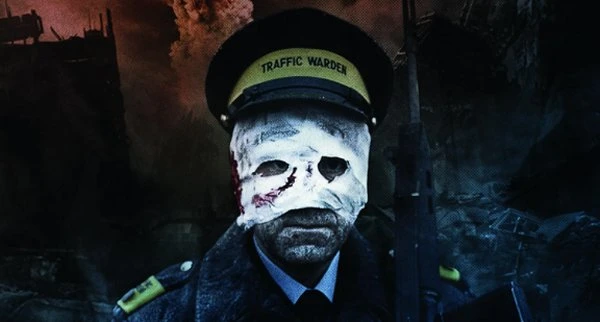
While there's no extraneous gore or gratuity, the events make for difficult viewing. The scene that sticks most in my mind is that in a desperately overcrowded hospital, where the sick and injured are treated by doctors with almost no access to equipment, drugs or basic hygiene. Treatment, even amputations, are conducted without anaesthetic. The horror of the scene is magnified by the knowledge that there are hundreds of people suffering similar traumas in war zones such as Gaza and Darfur today.
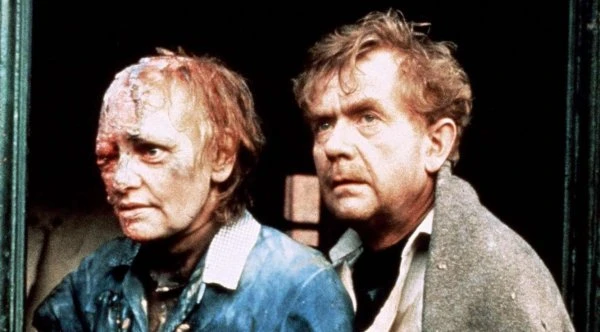
This is part of what makes Threads such disturbing viewing; not just how close we came to this brutal reality, but how close we have come again. In the film, US and Soviet involvement in Iran leads the Middle East to become the flashpoint that escalates to outright conflict, something that has concerning parallels with today's global political situation, while populist figures in Russia are again threatening the West with nuclear attack. Yet, this is also a source of hope; because the Cold War did not ignite into Mutually Assured Destruction, and forty years later we are able to watch this film and feel relief that it didn't come to pass. With films like Threads bringing home the horrifying consequences of nuclear war, there's hope that we will never take that final, terrible step.
Threads is available to stream on iPlayer until September 2025. It is highly recommended but should be viewed with caution. No review can fully prepare for just how distressing an experience the film is.
Seen this show? How do you rate it?
Seen this show? How do you rate it?
Published on October 31st, 2024. Written by Daniel Tessier for Television Heaven.





